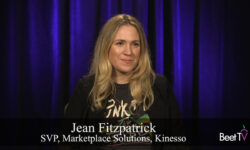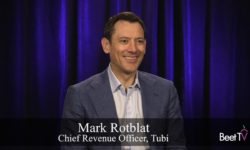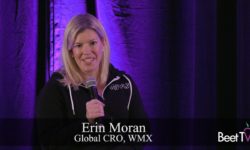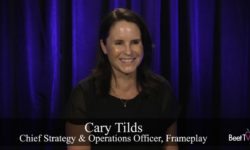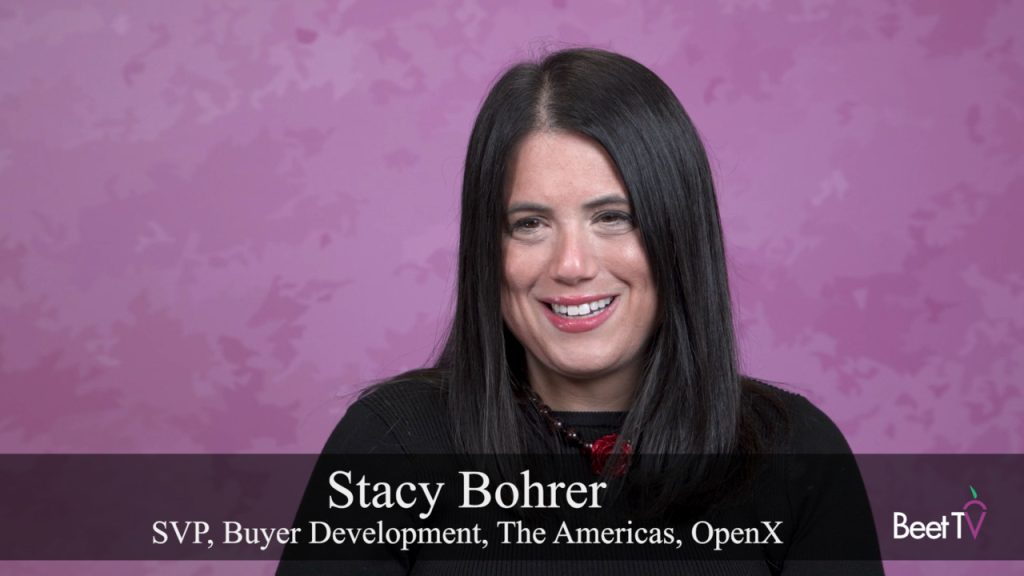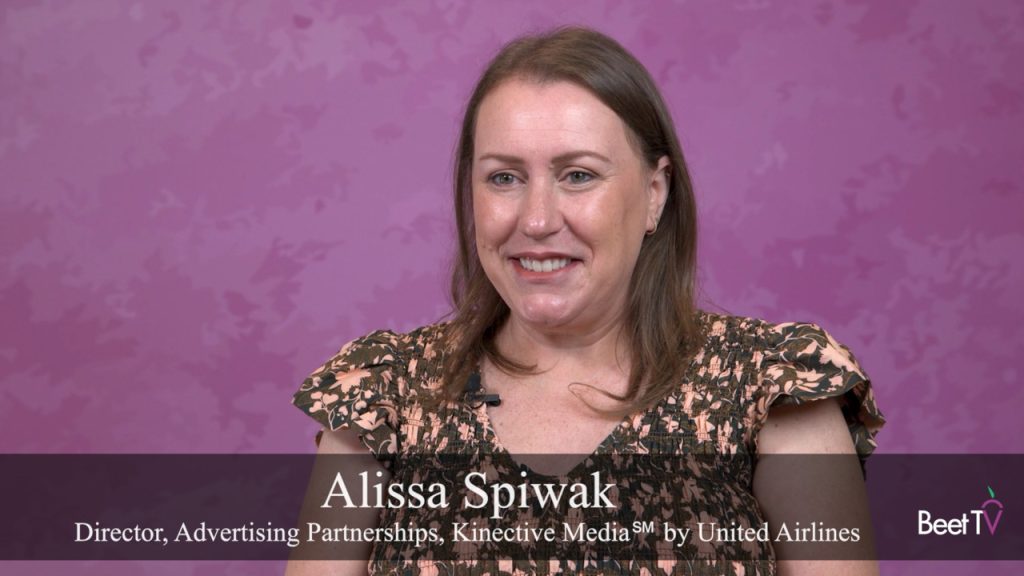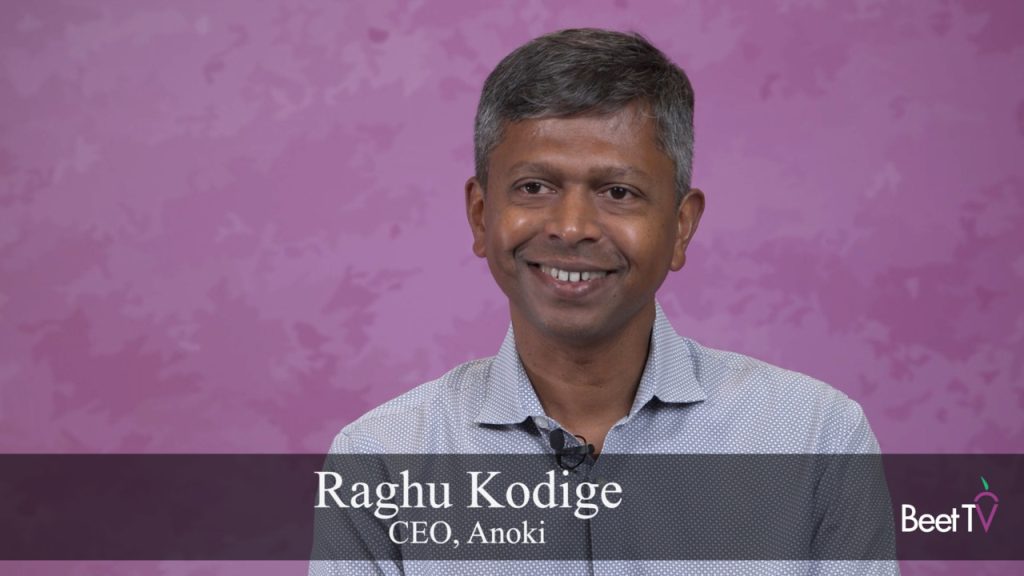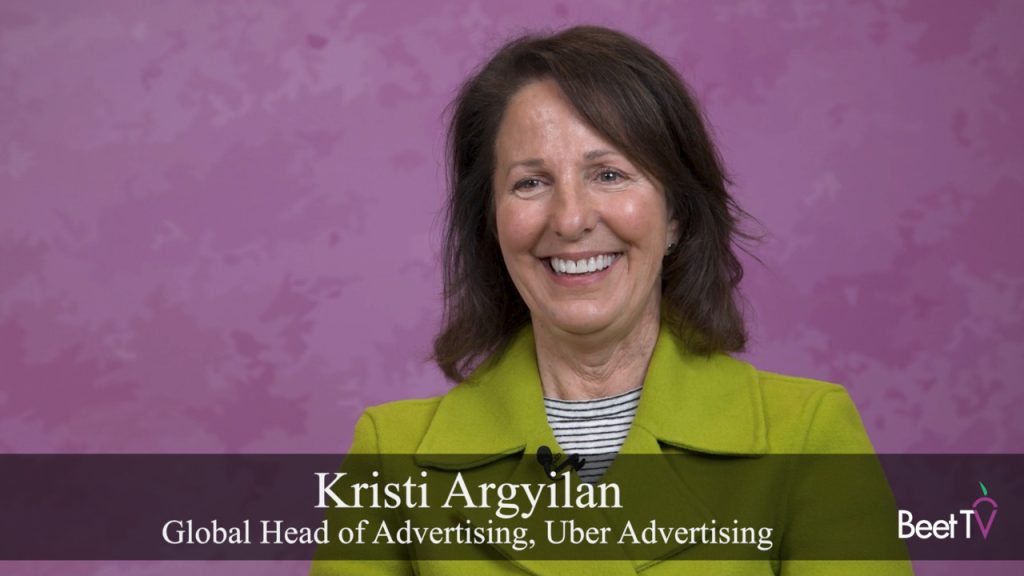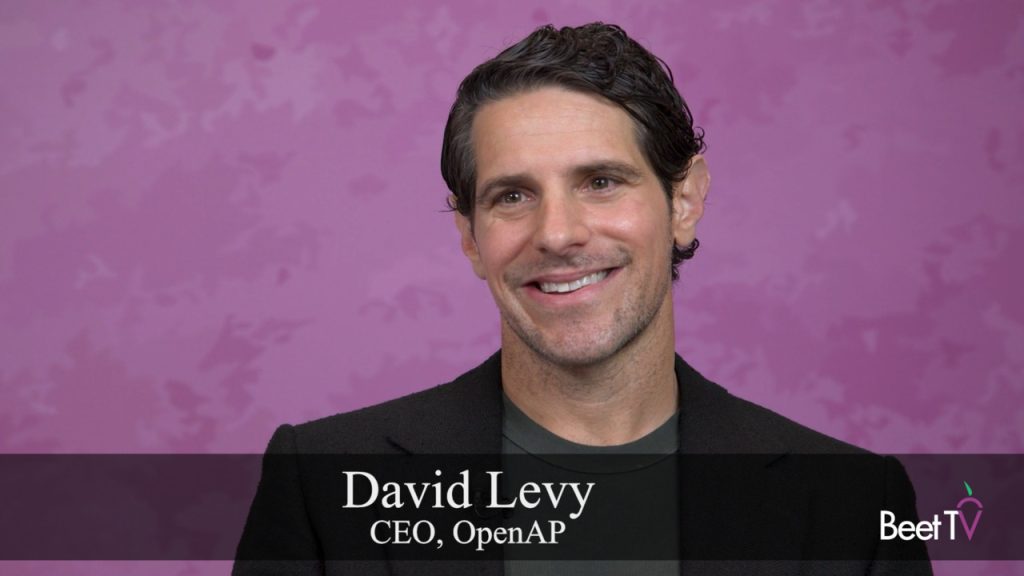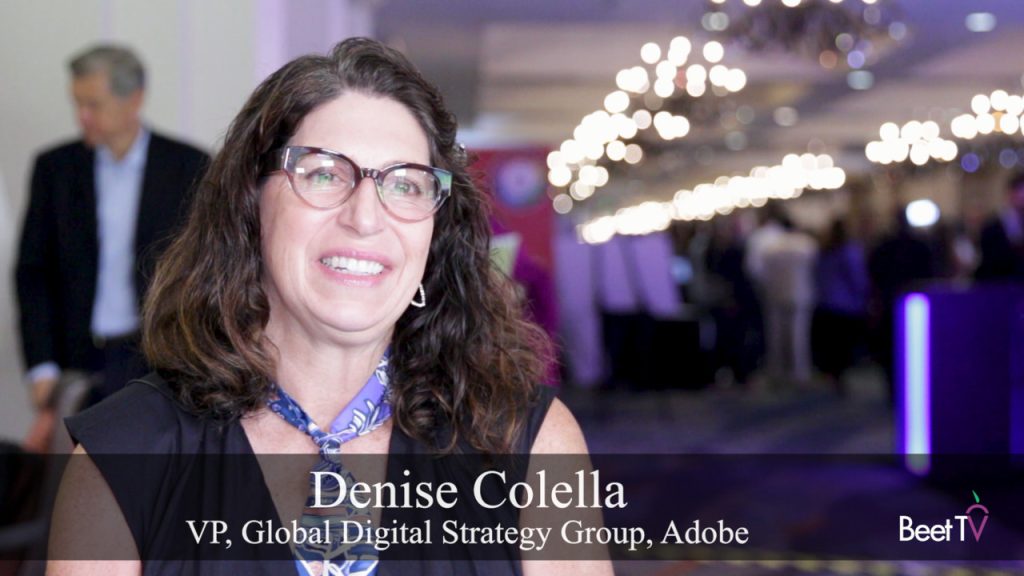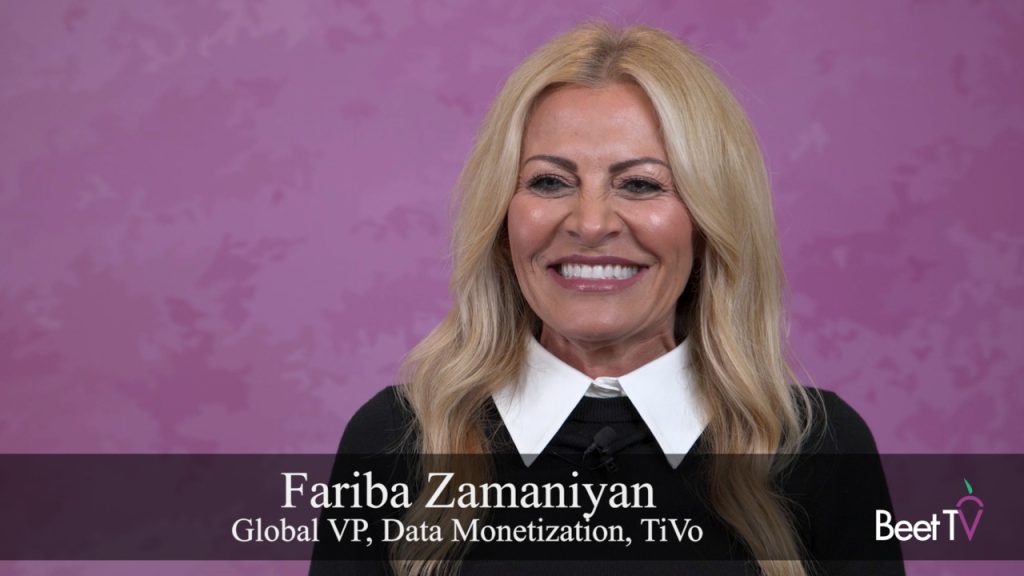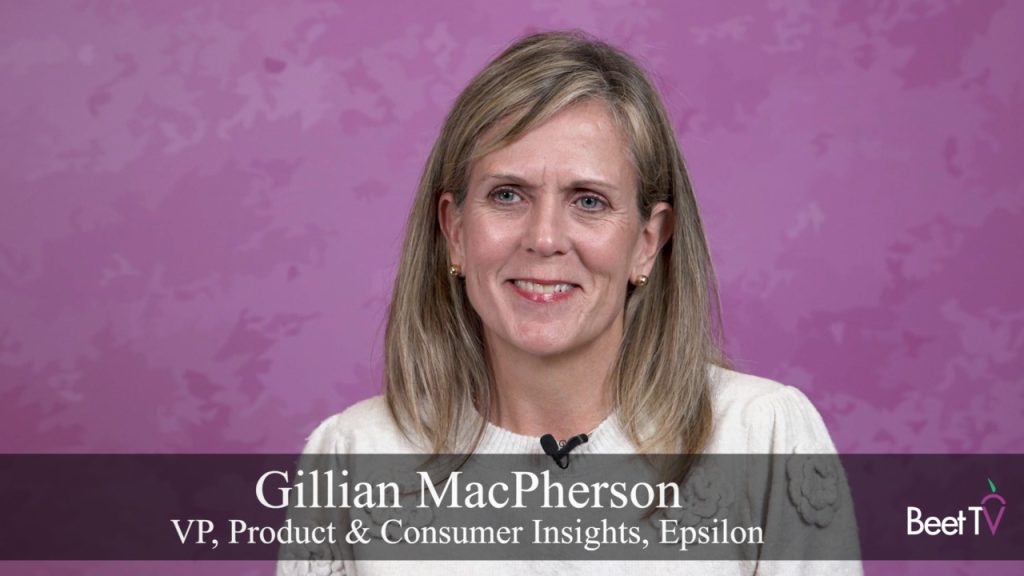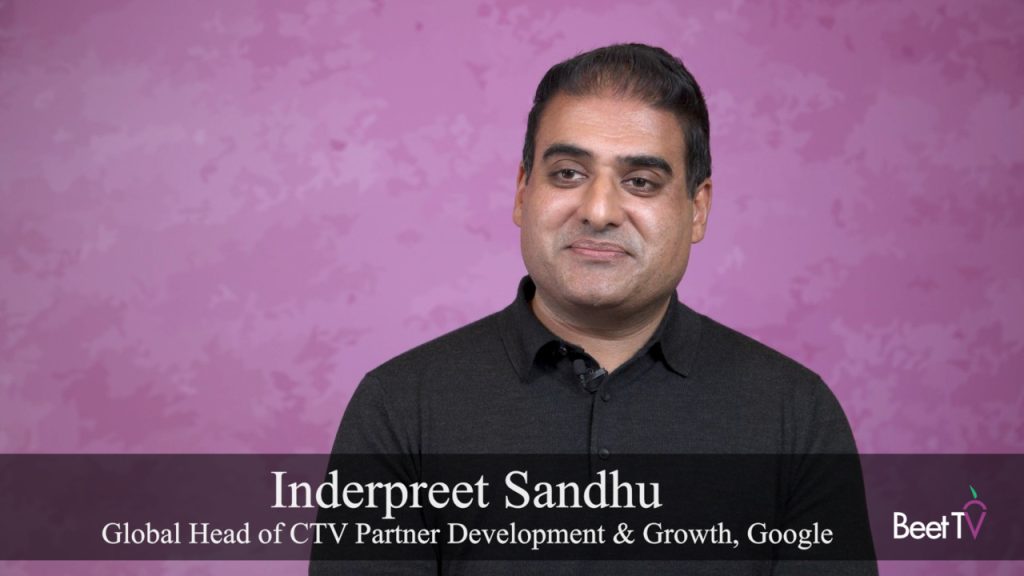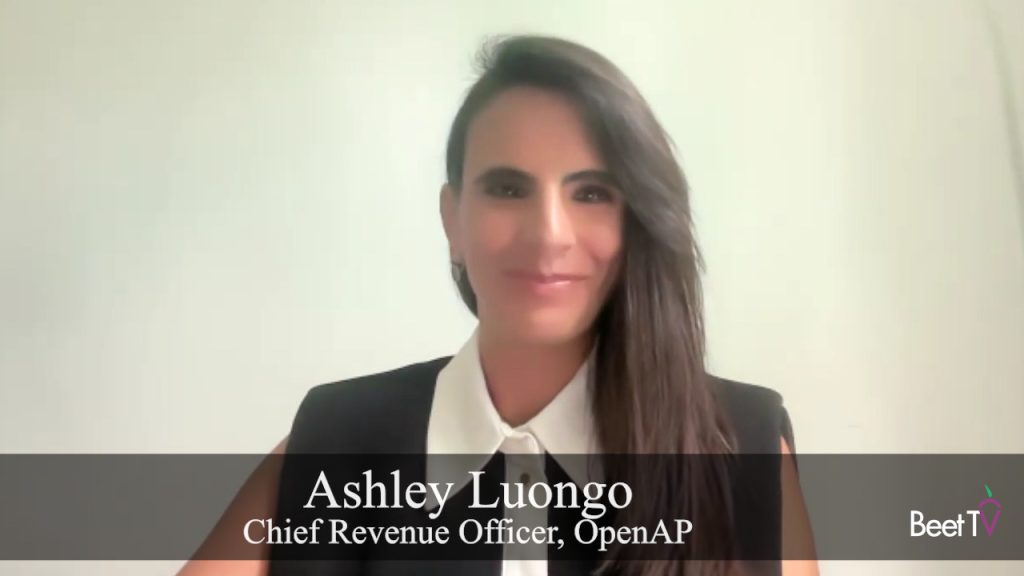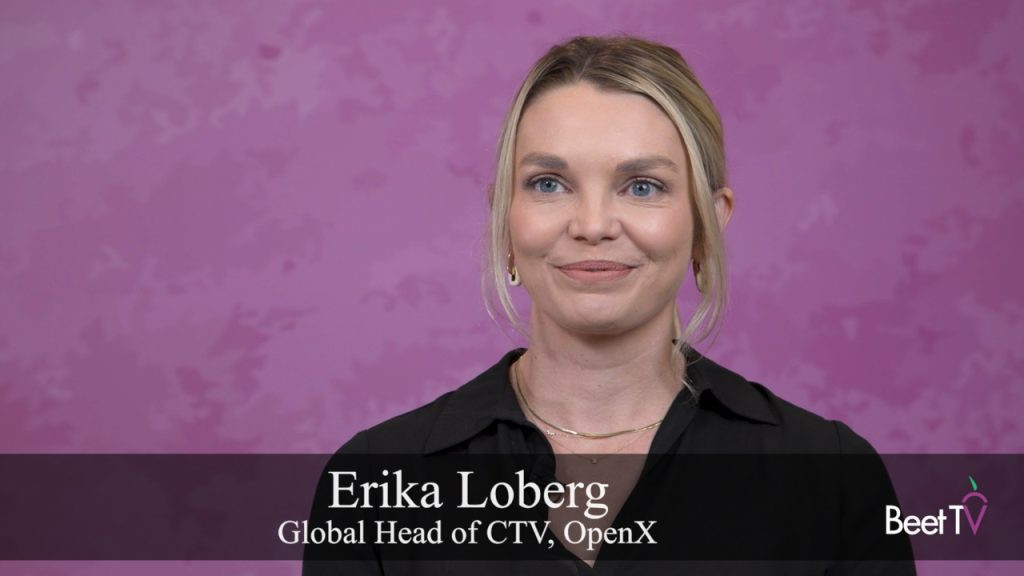LOS ANGELES — Don’t call it the foxtrot, but the revolution leading to the future in TV ad sales may be a case of “slow, slow, quick-quick, slow”.
In this recorded interview with Denise Colella, ex NBCUniversal SVP, Advanced Advertising and Data, at Beet Retreat, Dave Clark, General Manager, FreeWheel, predicts a profound up-ending in TV – one that won’t happen overnight.
“It is going to happen incrementally,” Clark said. “There will be these inflection points where things click together and all of a sudden you get scale. It’s the classic ‘things will go slow, then fast’.”
Giants hold the cards
The major changes include TV ad targeting, performance-based buying and, buyers hope, unified measurement.
But Clark explained why the traditional TV industry hasn’t yet been as disrupted as other media industries before it.
“We all know that traditional linear ratings are on decline and that’s unlikely to reverse,” he said. “At the same time, marketers have allocated, in the US alone … $70+ billion dollars against linear inventory this year.
“You probably need to get to some meaningful scale, 50% plus, maybe 60, 70% of American homes that you can reach addressably, before the marketplace really comes in.
“When industries get disrupted … there’s a tendency to just think, ‘All of the traditional incumbent players are going to go away, replaced by new tech companies’. It doesn’t always play out that way.”
Starting the #BeetRetreat afternoon sessions strong with @daveclark and @decolella discussing re-thinking linear in a changing TV ad market: pic.twitter.com/xVuQCwx1l3
— Andy Plesser (@Beet_TV) November 18, 2021
Three governing dynamics
Clark laid out three core rules that are governing the shape and state of advanced TV advertising right now.
1. New advertisers will grow the opportunity
“(TV) growth has been driven by the introduction of new advertisers into the space … as opposed to, say, Procter & Gamble spending more money next year. Simply just making it targetable means a whole class of advertisers can come into the ecosystem. That’s really exciting.”
2. Incumbents dictate the speed of the revolution
“Because (TV ad) supply is constrained in television, the suppliers have more influence over the pace of change and the shape of change than maybe has played out traditionally in the web world. These are actually really sophisticated companies who have a lot at stake … They probably have the single biggest influence over how all this stuff plays out.”
3. Missing links will force federation
“Advertisers are voting for the simplicity of platforms and buying platforms. None of us in the ecosystem have enough reach to deliver a whole campaign. It’s in everybody’s financial interest … to behave more like a platform and come together, maybe a sort of a federated platform.”
A revolution in chapters
Clark said he is curious to see what happens when TV capabilities resemble digital platforms.
If all TV inventory becomes buyable in a Facebook style, using specific audience segments and on a performance basis, it could usher in more small- and medium-sized businesses.
“Local advertisers would pay higher CPMs,” he said.
Jon Whitticom, Chief Product Officer at @FreeWheel, shares his thoughts on why TV publishers, distributors and advertisers must overcome challenges with media data. #AdTech https://t.co/tQWwknBC3K pic.twitter.com/pZ8HiO5ug7
— FreeWheel, A Comcast Company (@FreeWheel) December 7, 2021
You are watching coverage from Beet Retreat Santa Monica 2021, presented by FreeWheel, IRIS.TV, Samba TV, TransUnion & Warner Music Group. For more videos, please visit this page.










